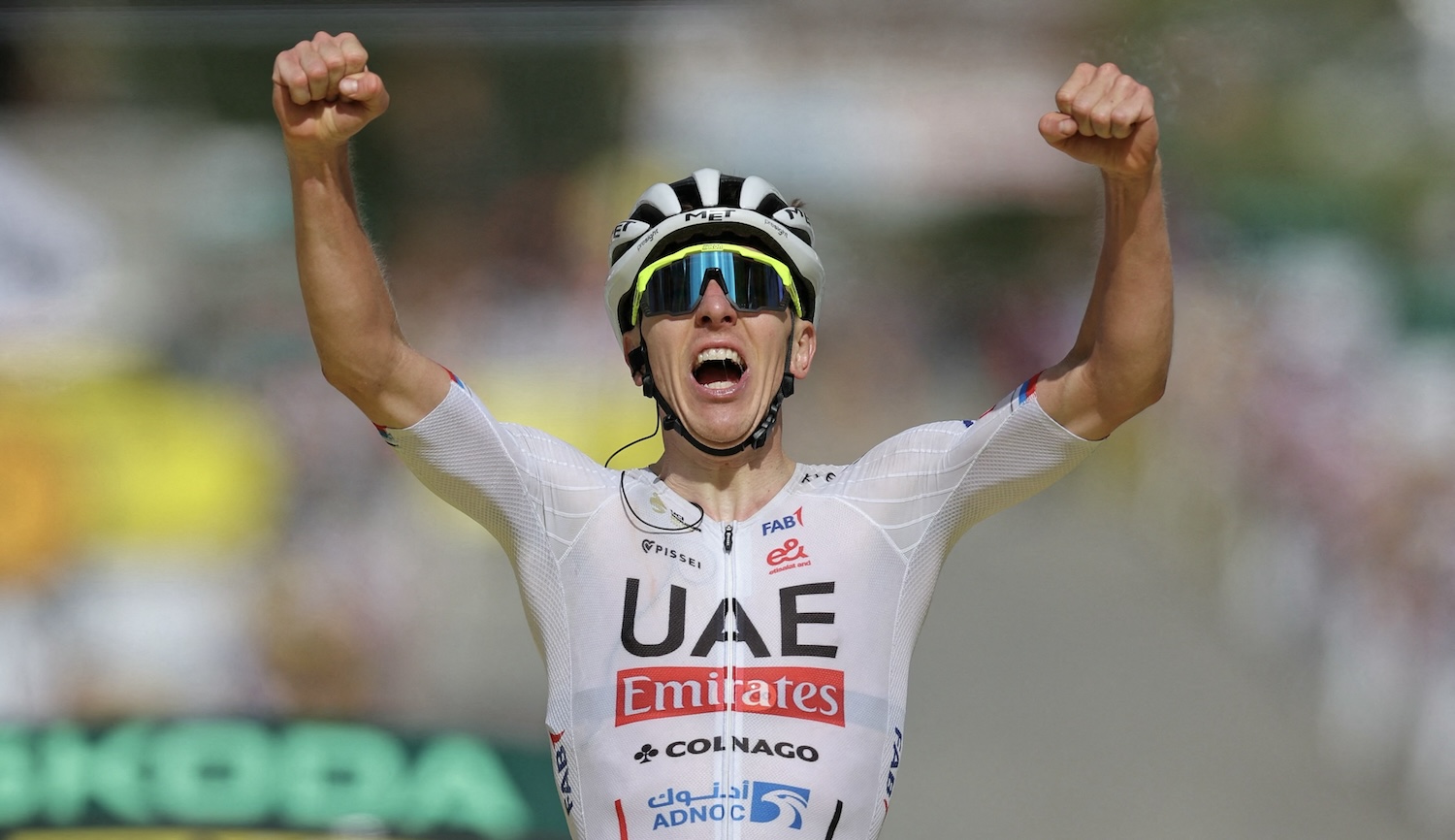Inside the final kilometer of the Col du Galibier, near the end of Stage 4, Tadej Pogačar ripped away from the rapidly shrinking peloton with venomous intent. His attacks always feel inevitable, and even though a headwind on the Galibier forced him to wait to make his move, there was no doubt that he would make it. He's the rider who never waits for someone else to take the initiative.
The real question was whether Jonas Vingegaard could follow. The two-time defending champion stayed in contact for an admirable few hundred meters, but Pogačar sustained his attack around the hairpins, broke his archrival, and put in a gorgeous descent into Valloire to end the first chapter of the 2024 Tour de France with a stage win and the yellow jersey on Tuesday. The race is on, and Pogačar has a decent early lead.
The Galibier battle was tough for Vingegaard, returning from a serious crash in April, but it wasn't the first. Pogačar was always going to test his legs early. The three opening days of racing in Italy were smothered by oppressive heat, exhausting the general classification group into passivity on Stage 1 as Romain Bardet capped off his career with his first-ever yellow jersey. On the final climb of Stage 2 in Bologna, Pogačar shot off from the pack, and Vingegaard calmly followed his wheel. Pogačar rode into the yellow jersey, which was a small consolation prize for failing to crack Vingegaard. The goal, as he said afterward, was not to gouge out a big chunk of time. He didn't want the jersey—made clear by his funny little exchange with Remco Evenepoel afterward—as much as he wanted "to test the legs of me and other contenders." His other rivals couldn't hang, but Vingegaard showed he was up for the fight. "I think this went way better than I ever expected, so I’m really satisfied," Vingegaard said.
As we saw last year, when Pogačar scrambled to recover from a broken wrist, riders tend to regain their bursty, 20-minute power before they get their high-alpine climbing legs back under them. Vingegaard aced the Côte de San Luca, but it was somewhat inconsequential compared to what was on tap. There'd be no hiding on the Galibier, and Pogačar's UAE team made it as hard on Vingegaard as possible, putting in a relentless charge in the forgiving early slopes of the Guisane Valley well before the truly selective terrain.
The past two Tours have been defined by Vingegaard's Jumbo-Visma squad exerting total control over the peloton on mountain stages, with Pogačar typically isolated by quintets of unsmiling yellow-clad workhorses. This time around, it was UAE that put forth a dominant show of strength. The team's flatland domestiques pushed the pace until the tripartite climbing machine of Adam Yates, Juan Ayuso, and João Almeida took over and forced a brutal selection. Yellow jersey Richard Carapaz lost five minutes, and every team leader but Evenepoel was without a teammate while Pogačar still had three.
For a moment toward the top of the climb, UAE's command seemed to waver as Almeida looked back and snapped at Ayuso, though the young Spaniard comfortably leapt to the front of the pack and pushed the pace. Pogačar's descending was as impressive as his ascending, and he picked up 26 seconds on Vingegaard on the downhill sprint into Valloire. The other contenders forced Vingegaard to work—why would you do any favors for the guy who dominated the past two Tours?—and the Dane looked totally drained as he crossed the line in fifth, ceding bonus seconds to Evenepoel and Ayuso.
Pogačar leads Evenepoel by 45 seconds, Vingegaard by 50, and Primož Roglič by 1:14. Through the first four stages, he's been the best rider, and his cushion is healthy for an opener that was difficult but featured no summit finishes or time trials. Pogačar hadn't been in the yellow jersey since Vingegaard's extraordinary win on the Col du Granon in 2022, so even if he was the slight favorite coming into this race, this kind of control has to be a serious relief. The guy who looked nervous at the opening press conference in Florence, where he admitted that he'd had COVID 10 days before the start of the race, was nowhere to be seen.
Even if Vingegaard is trailing, he's still in a fine position, and he showed no frustration after the race. If anything, he seemed confident. When a reporter asked him how his race was matching up with expectations, he said he was ahead of schedule. "I expected to lose two minutes or more, so to be only 50 seconds behind is still quite good," he said. "My time will come."
"I expected to lose 2 minutes or more, so to be only 50 seconds behind is still quite good. My time will come"
— ITV Cycling (@itvcycling) July 2, 2024
Jonas Vingegaard was pragmatic after losing time to Tadej Pogačar on stage 4 🇩🇰#TDF2024 pic.twitter.com/MACt2D6o5C
These two are perfect competitive foils for each other. Pogačar is a pyrotechnician who tries to win every race with aggression and panache, while Vingegaard is the picture of steadiness, a rider who can't be knocked off his axis and exudes a calmness that masks a cold desire to destroy his opponents. Their pre-Tour narratives map neatly onto the contours of this rivalry: Pogačar seized an early lead because he's on form; Vingegaard struggled because he hasn't raced in months. But there are plenty more stages for those narratives to be broken.






